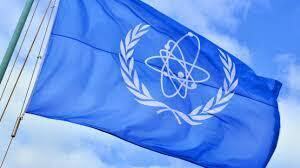
The top Iranian diplomat made the remarks addressing the reporters after a session with ambassadors, chargés d’affaires, and heads of foreign and international representations in Tehran on Sunday morning.
During his address, Araghchi noted that Iran has consistently sought fair and balanced diplomatic solutions, but Western countries rejected these efforts due to excessive and unreasonable demands. He stressed that past threats, including military action and snapback pressures by European countries, failed to achieve results and only complicated the negotiation process.
"Experience has shown that there is no solution to Iran’s nuclear issue other than a diplomatic and negotiated one," he said, adding that in recent years, there have been repeated threats of military attack, but such an approach has failed to resolve any issue. The Europeans also threatened to invoke the snapback mechanism, but like military threats, this measure proved ineffective and only made the negotiation process more complex and difficult.
"The three European countries thought they could achieve results through the snapback mechanism, but that tool was ineffective and only made diplomacy more complicated. Diplomacy will always continue, but the form and the parties involved in negotiations have now changed. Undoubtedly, the role of the European countries in the upcoming talks has diminished, and their diplomatic justification for participating has weakened," Araghchi underlined.
Elsewhere in his remarks, the top Iranian diplomat said that the conditions that have been reported in the media as Iran's alleged demands have never been officially communicated to Tehran. "In recent months, our discussions have been focused solely on the nuclear issue, conducted either directly or indirectly with the American side. In these exchanges, our proposals were completely transparent. Had they been taken seriously and the window for diplomacy not been restricted, reaching a negotiated and diplomatic solution would not have been out of reach. Even now, if the [opposing] parties act in good faith and consider mutual interests, the continuation of negotiations is possible. However, recent developments at the UN Security Council have made the process more difficult."
Araghchi noted that the Ministry of Foreign Affairs will continue its diplomatic efforts, as diplomacy can never be disregarded. "Nevertheless, the situation following the military attack and the activation of the snapback mechanism has changed, and the upcoming negotiations will certainly be different from before."
Referring to Iran's cooperation with the Agency, Araghchi said that as mentioned, Iran has signed a new agreement with the International Atomic Energy Agency (IAEA) concerning technical cooperation. "This step was necessary due to changes in the field and security threats, including attacks on nuclear facilities, as the previous cooperation framework could no longer continue."
"After several rounds of talks, this agreement was reached in Cairo. However, the Cairo Agreement no longer suffices under the new circumstances, including the activation of the snapback mechanism, and new decisions will be made," he announced.
"To prove the peaceful nature of its nuclear program and its goodwill, the Islamic Republic of Iran has exhausted all diplomatic avenues, pursued consultations and cooperation, and presented constructive and balanced proposals. There is now no excuse left for Western countries to prevent Iran from cooperation or dialogue. Iran’s positions are fully legitimate and reasonable, and it is ready to pursue any solution that leads to confidence-building."
Referring to the Israeli imposed war on the country in June, Araghchi said that more than 120 countries and nearly all international organizations condemned the Israeli action and expressed their support and solidarity with the Islamic Republic of Iran. "The reason for this support was the prudence, rationality, and wisdom of the Islamic Republic of Iran as a responsible actor in international relations, as well as its continuous efforts to pursue negotiations.", Mehr reported.
"Today, once again, Iran has demonstrated that while safeguarding its own rights, it remains fully prepared to consider any solution that can ensure mutual interests and build confidence in the peaceful nature of its nuclear program," he concluded.